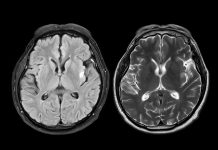A new study has discovered that the regular consumption of sardines helps to prevent the onset of type 2 diabetes
Nutrients found in sardines help to protect against type 2 diabetes, which affects around 14% of the Spanish population over the age of 18, according to a new study led by Diana Diaz Rizzolo, lecturer and researcher of the Universitat Oberta de Catalunya’s (UOC) Faculty of Health Sciences and the August Pi i Sunyer Biomedical Research Institute (IDIBAPS).
Prediabetes
The study enrolled 152 patients aged 65+ who had been diagnosed with prediabetes and put them on a nutritional programme that sought to reduce the risk of them developing the disease.
Only the intervention group added 200 grams of sardines, the equivalent of two cans of sardines in olive oil, to their diet every week. 37% of the members were at a high risk of suffering from diabetes at the start of the study and after one year, only 8% remained at a very high risk.
Of the group that did not include sardines in their diet, 27% of the members were at a high risk of suffering from diabetes. After one year, 22% found themselves in the same category.
Improvements were also seen in other important biochemical parameters, such as a reduced insulin resistance index (HOMA-IR), increased “good” cholesterol (HDL), increased hormones that accelerate the breakdown of glucose (adiponectin) and decreased triglycerides and blood pressure, amongst others.
“As we get older, restrictive diets (in terms of calories or food groups) can help to prevent the onset of diabetes. However, the cost-benefit ratio is not always positive, as we found in other studies”, stated doctor Rizzolo. “However, the results lead us to believe that we could obtain an equally significant preventive effect in the younger population.”
“Nutrients can play an essential role in the prevention and treatment of many different pathologies, but their effect is usually caused by the synergy that exists between them and the food that they are contained in. Sardines will therefore have a protective element because they are rich in the aforementioned nutrients, whereas nutrients taken in isolation in the form of supplements won’t work to the same extent.”
“Since it affects the regulation of many biological process, and we need to understand if they have played a part in this protective effect against diabetes 2”, she added. They have also initiated studies on the modulation of the expression of certain genes related to inflammation, which could play a role in the onset of diabetes 2 and various other diseases.
The full study has been published in the Clinical Nutrition journal.








